Glasgow Juvenile Law Lawyer, West Virginia
Sponsored Law Firm
-
 x
x

Click For More Info:
-
The Law Offices of Claude S. Smith III
805 Bigley Avenue Charleston, WV 25302» view mapCriminal Defense Law Working With Clients One On One
As your attorney, I will make sure you know that I am here for you. I will keep you updated on your case as it progresses.
800-936-8471
Not enough matches for Glasgow Juvenile Law lawyer.
Below are all Glasgow Criminal lawyers.
Ronald N. Walters
✓ VERIFIEDAccident & Injury, Criminal, Bankruptcy & Debt, Family Law, Trusts
Ron has, over the last decade, assisted clients by planning and designing settlements to address future needs and ensure any government benefits are p... (more)
Claude S. Smith, III
✓ VERIFIEDAccident & Injury, Personal Injury, Divorce & Family Law, Criminal
Whether you have suffered an accident while on the job or suffered an injury during a car accident or semi truck accident, The Law Offices of Claude S... (more)
Traci L. Wiley
Criminal, Colleges & Universities, Commercial Insurance, Construction Contracts
Status: In Good Standing
Todd M. Sponseller
Criminal, Deceptive Trade Practices, Employment, Environmental Law
Status: In Good Standing
Christine D. Wallace
Adoption, Alimony & Spousal Support, Animal Bite, Criminal
Status: In Good Standing
Jacqueline Ann Hallinan
Bad Faith Insurance, Civil Rights, Criminal, DUI-DWI
Status: In Good Standing
FREE CONSULTATION
CONTACT Claude S. Smith, III Charleston, WV
Claude S. Smith, III Charleston, WV Practice AreasExpertise
Practice AreasExpertise


